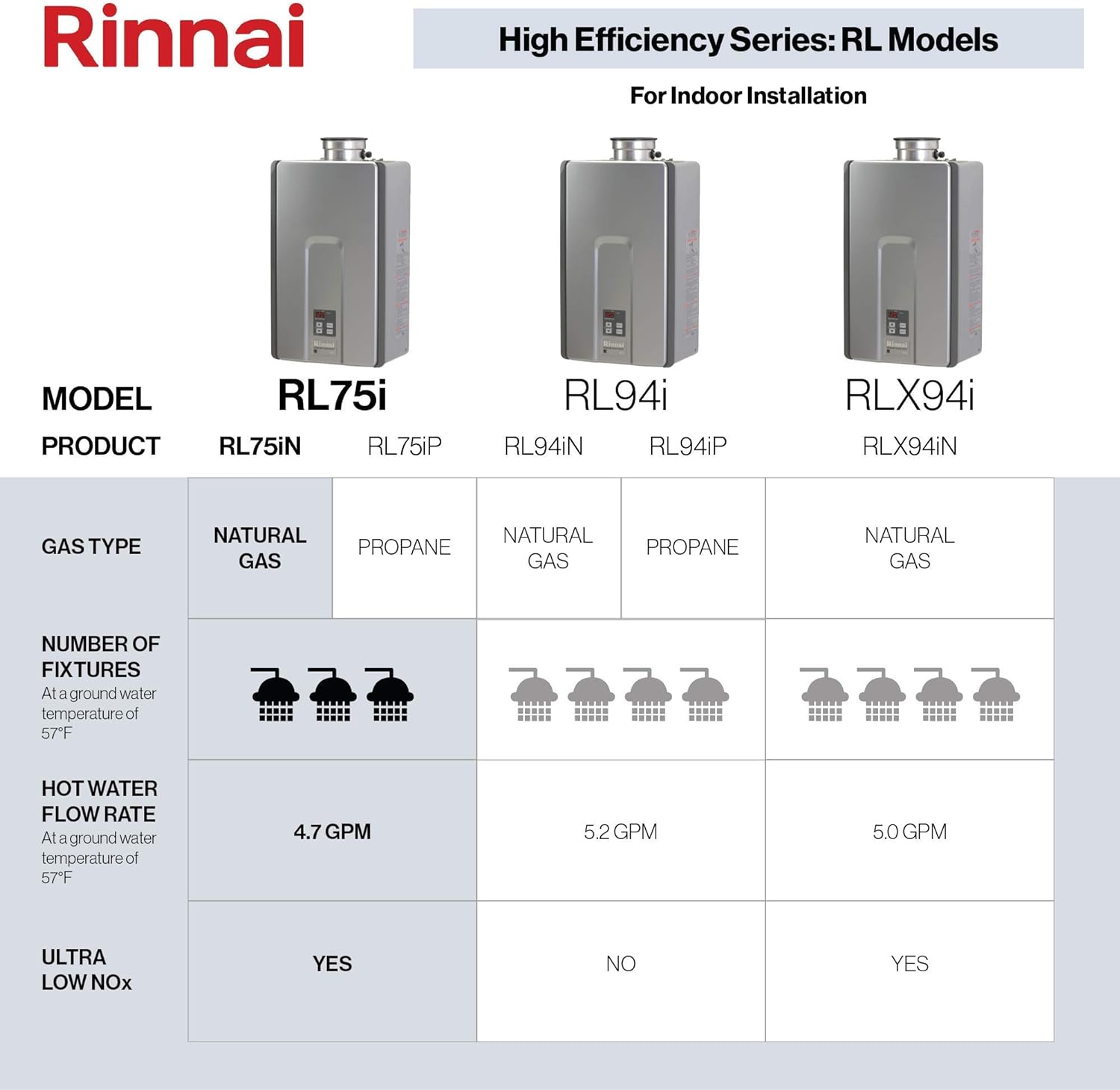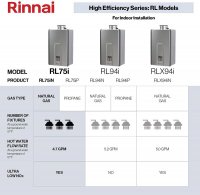The incoming water temperature is a big determining factor when thinking about using a tankless as is the actual volume you need at any one time. WIth a tank, the entire contents is the same temperature when you start (well, close!). With a tankless, it all depends on the burner size and the volume you are asking it to deliver. So, two different scenarios...say you love to take a long hot soak in a big tub. A tankless might be useful, but might not as well since the volume requested at the tub valve may exceed the ability of the tankless to heat it as it goes by. Think waving your hand over a candle flame...move slowly, you might burn yourself...move quickly (like when drawing lots of water), and you may hardly notice it. Same thing with a tankless system. Occasionally need to use a hot cycle on your washing machine to sanitize something? You may not get it very hot with a tankless system, regardless of how much you need to fill the thing.
They generally do cost more to buy and are more complicated to install. On a new construction, they should be able to ensure you have enough gas supply and the piping is sufficient. On a retrofit, that may not be the case. The burner in a typical tankless is about 200K BTU...that's probably 5x more than a heating system may need. A typical stove uses maybe 40-60K, so adding a 200K load to the supply needs some advance planning. MOst places don't have a demand charge (a charge based on your peak usage), but some do. A tankless could trigger a higher base rate in areas that use that type of pricing compared to the standby losses in a tank. Some tankless systems don't allow hot water recirculation, so probably not an issue in a small place like you're planning, but that could mean a long wait to get hot water at the furthest location. It does take a moment for the flow sensor to detect demand and then the burner assembly to come up to speed. Not an issue with a tank, since it's already hot. Some dishwashers and washing machines tend to pulse water during part of their cycle...the tankless system will often end up just starting to turn on when the 'pulse' turns off, and may not provide much hot/warm water to those devices. Turning on/off is often when things fail. Lots of extra cycles may mean shorter life. A tank tends to run longer, and is simpler...any decent plumber can replace or repair one with parts on their truck most of the time, weekday or weekend.
Having a continuous source of hot water might tempt you into taking longer showers, so the savings overall may not be huge if they exist. NOt every plumber is capable of troubleshooting a tankless system, nor are you likely to be able to find parts on the weekend or get it fixed then, either. So, lots of things to think about.
Even with soft water, you'll likely need to descale the thing. Not as often, but still. By the time a tank typically may benefit from that, it's time to replace it, so most people never deal with it.


